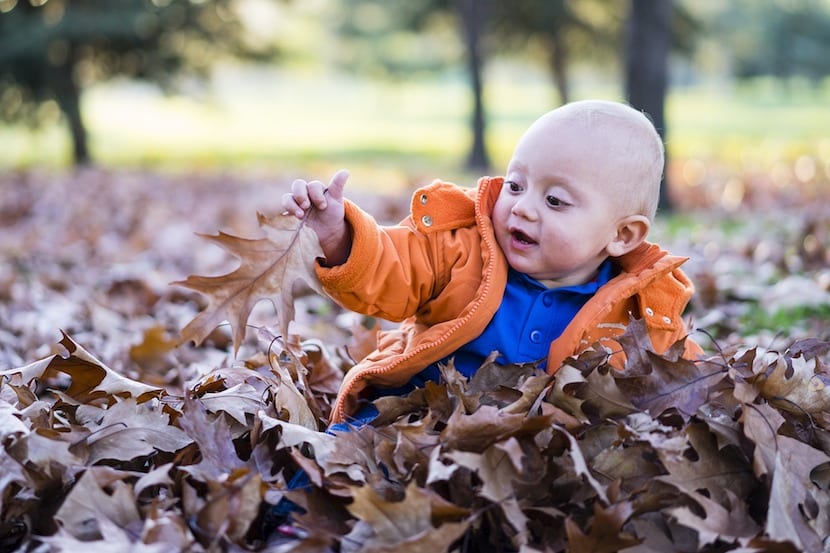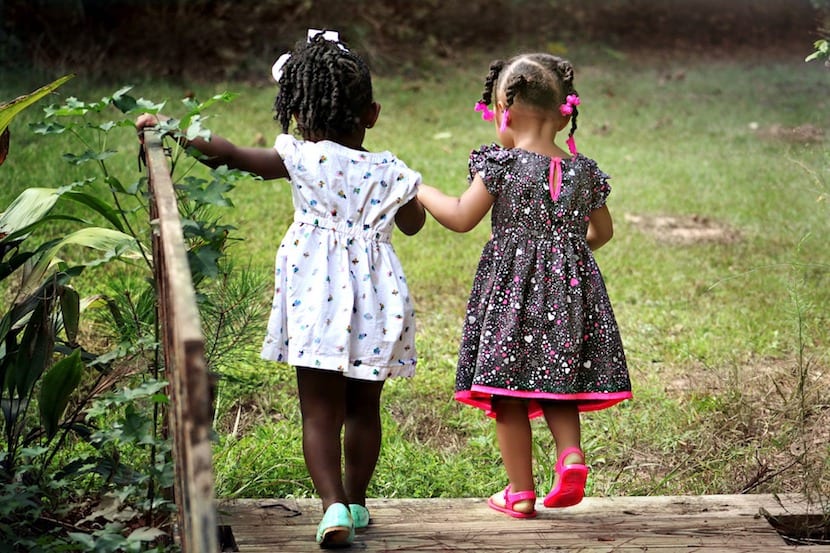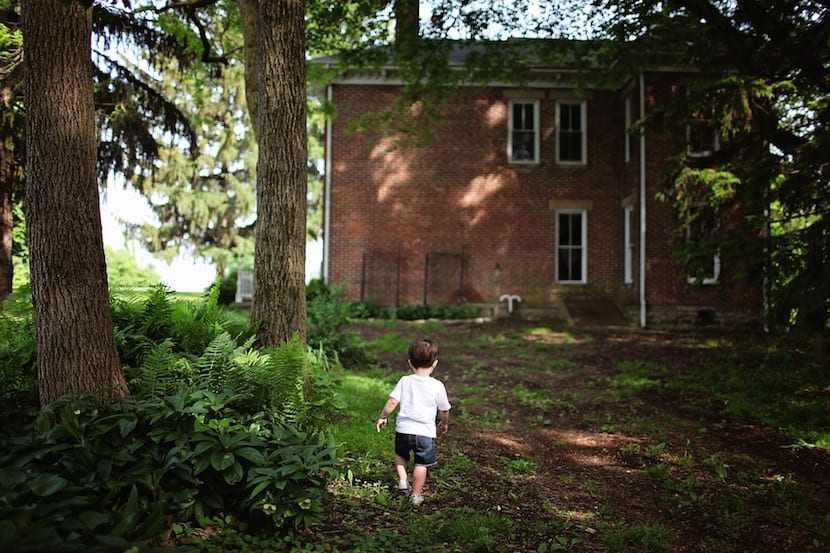
Hi Hi! A few weeks ago I wrote a post about schools in nature I hope you find it interesting. Today I bring you an interview with Coti and Ari, the directors of the fantastic Ojalá Leaf project. What exactly is Ojalá Leaf? Well, a school in nature located in Alpedrete (Madrid) where children directly enjoy the outdoors.
Coti and Ari talk to us about how their project came about, what they think about current education, the aspects that would change about it and a lot of other things. Are you going to miss this wonderful interview? I really encourage you to read it to the end! Without a doubt, the Ojalá Leaf project is very worthwhile. We started!
Interview with Coti and Ari about their Ojalá Leaf project
Madres Hoy: Hello, girls. I wanted to thank you for accepting the interview for the blog. Can you tell us how the idea for Ojalá Leaf came about?
Hopefully Sheet: The idea arose almost 3 years ago, when we learned about the existence of the forest schools in northern Europe, as soon as we investigated a little about this methodology we were clear that it was what we wanted to do. We began to study, train, visit forest school projects in Madrid, investigate ... and when we had the necessary information we began to write our project.

MH: What do you think of current education? Do you think it is adapted to the needs of all children?
ooh: We have worked for several years in conventional schools and colleges, and that is why we decided to create Ojalá Leaf. In most cases, children are the ones who adapt to education, and not the other way around. Children have to meet a series of equal objectives and all at the same time, leaving aside the individual needs of the students, without attending to their emotions and their rhythms and motivations.
Which makes them passive children, directed by an adult, without being the protagonists of their own learning. We believe that current education needs a profound change in which the real needs of children are covered and valued, such as, for example, the need to play.
MH: What emotional benefits are associated with children's contact with nature?
ooh: Daily contact with nature brings many benefits to the little ones. It is a multisensory space, where stimuli are in harmony and coherence. It is a space that allows independence and at the same time the possibility of socializing, reduces levels of stress and anxiety, increases concentration, the feeling of well-being, self-esteem, resilience, initiative, adaptability and autonomy, among others. All this has a place since adequate time is dedicated to feeling, discovering and stopping, to observe oneself and others. The simple fact of fostering respect for the environment makes emotions work spontaneously.
MH: Some nursery schools are teaching three-year-olds to add and subtract. Are there not more important things in life to learn before those concepts?
ooh: At Ojalá Hoja we defend free and spontaneous play as a learning engine, Human beings learn by playing, and it is vitally important to respect this, especially in the youngest. We have stopped trusting in the ability of children to learn based on their curiosity and motivation, the adult is the protagonist and the one who chooses the concepts that they believe are important for children They learn at a very early age, which is a big mistake.
Early childhood education has become a career where children are pressured to learn math or to read and write when many of them are not maturely prepared yet, and once again leaving aside the emotions and motivations of each student. These pressures can lead to future school failure.
MH: Your project absolutely believes in diversity. What benefits does it have that children are not separated by age?
ooh: In diversity is richness, and very beautiful groups are created, where the older ones help the little ones and at the same time the little ones learn from the older ones. It is like a big family.
MH: Could you tell us what a day is like for children in Ojalá Leaf?
In the morning we wait in the field near the house for all of us to be, and we go to the field where we do an assembly, which is our moment of the group meeting day, where we talk about things that have happened to us, we decide where we are going to go to play that day, we tell stories, we sing songs, we talk about conflicts that may have arisen and / or the limits. After the assembly we make a yoga proposal, the children who wish to participate, but choose their game in nature.
At midmorning we have an aperitif, and then free play or on specific days we make proposals for non-directed activities, which can be art, music, movement, sensory ... or any activity that may arise from the children's motivations. These activities are never mandatory. Then we all eat together in the field, and if a child needs it, they can take a nap. A little before the families come, we approach the little house, where we meet them.
This schedule is very flexible, as the days are very spontaneous. Depending on the weather and the needs of the children, it changes, and we use the house more or less depending on this.
MH: How is your relationship with the families? Do you do activities in which fathers and mothers can also participate with their children?
ooh: The relationship with the families is very close, We believe that it is very important that there is good communication between school and family, since they are an essential part of the life of each child. Regarding activities, families are invited to participate at specific times at school.
MH: At Ojalá Leaf, you respect the learning pace of the little ones as much as possible. Do you think that nursery schools sometimes go too fast with children and do not assimilate the content?
ooh: Yes, as we have mentioned before, nursery schools often become a race to achieve goals, sometimes meaningless, which stresses students and teachers. For there to be truly meaningful learning, it is necessary to respect the motivations and rhythms of each child.
MH: Personally, I have been a child educator for three years and the children's activities were conducted practically all day. How important is free play in your project?
ooh: Free play is a fundamental pillar of our project. We consider it really important because it is the tool that children use to discover the world around them. The engine that drives them to use this tool is curiosity, and this curiosity in turn is the engine of learning, since human beings are curious by nature. When a child plays freely in an optimal environment, he / she reaches a state of maximum concentration called “flow state”, where neurons of vital importance in their development are connected.

MH: Do you use textbooks or teaching materials in Ojalá Leaf?
ooh: We do not use textbooks, and the material we use is primarily natural, structured and unstructured material, based on children's interests.
MH: Do you have limits and safety rules so that nothing happens to children?
ooh: Yes, of course, it is very important to have certain limits of respect and safety. When talking about free education Many people think that there are no limits but we have limits that give us security and a respectful relationship with each other and with nature and the environment. The limits we have are clear and coherent so that children understand, assimilate and internalize them. We work on these limits throughout the year.
MH: Do you think nursery schools give the environment the importance it deserves?
ooh: We cannot generalize, since in many schools they go out with the children to the fields and carry out activities with natural materials. But in schools that are in large cities without a nearby field, the natural environment is not usually given much importance. It is very typical to see how the children make autumn, spring cards ... instead of going out to see the leaves of the trees fall, the flowers ...
MH: What values can children who come to Ojalá Leaf learn?
ooh: Values such as respect for oneself, for others and for nature and materials, empathy, trust, caring for others and the environment.
MH: Girls, it has been a pleasure having you Madres Hoy. But I would like to ask you one last question. What would you change about Spanish education?
ooh: Well, broadly speaking, we would change the ratio, there are very overcrowded classes of children, which give rise to a very directed education and without time to listen to the child and their real needs. We would change the hours of tokens and directed activities for free and spontaneous play. And ongoing teacher training, which we believe is essential for a change in education.
Thank you very much for the beautiful interview, it has been a pleasure.
What did you think of the interview with Coti and Ari? I hope you liked his project Ojalá Leaf very much.